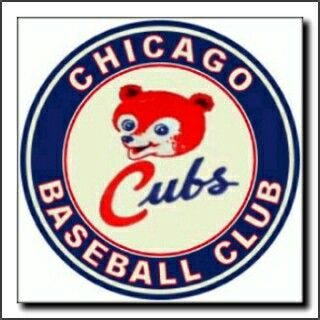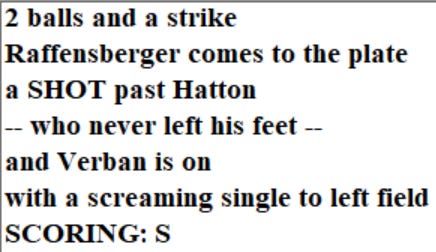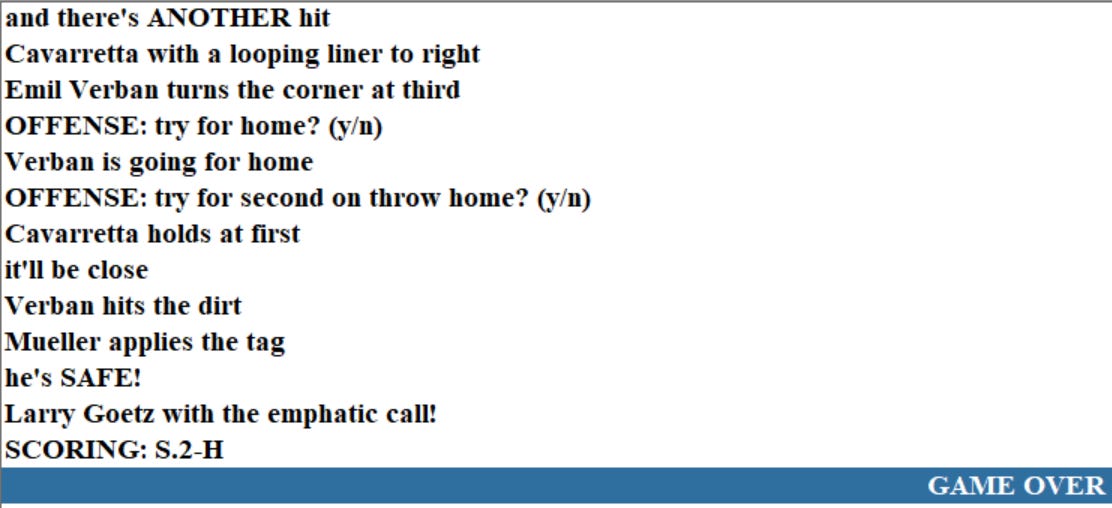Wild One at Wrigley
The 1949 Cubs were bad. I mean, they were really bad.
It’s kind of hard to explain this to somebody who hasn’t managed this team. The Cubs have basically no offense, and have poor pitching to boot.
With all that in mind, I settled down to play a game between the Reds and the Cubs that I thought would likely be meaningless. And, well, I think you have an idea of where this one is going.
Controversial Decision
We’re going to jump straight into the good stuff here.
The Cubs and Reds managed to enter the 8th inning tied at 1. There hadn’t been much offense to speak of by that point. With two outs, Phil Cavarretta lined a single to right field, setting the Cubs up with a rare scoring opportunity.
That set things up for Frankie Gustine, who hit into one of those classic Wrigley Field plays:
I sent Cavarretta to third knowing that this might happen. I don’t regret the decision, even though he was thrown out. With so few hits and runs in this one, we needed to take every chance we got.
But, yeah, that was a golden opportunity wasted.
9th Inning Rally
Fortunately for the Cubs, the 1949 Reds aren’t exactly a great offensive team, either.
After getting the Reds out in order, the Cubs pieced together a brief ralley in the 9th.
It all started with Andy Pafko:
True to form, the Cubs couldn’t move Pafko up. Hal Jeffcoat popped out to third base, and Peanuts Lowrey flied out to shallow left field.
That brought up Roy Smalley with two outs:
As you can see, I learned from my mistake in the bottom of the 8th.
That brought up catcher Rube Walker with a chance to win it:
I was excited when I saw the “deep out to left” part — but it was nothing more than a loud out.
10th Inning Rally
The Reds went down quietly in the 10th: 3 up and 3 down.
In fact, Cincinnati was extremely quiet in the last half of this game. Cincinnati’s last baserunner in this game came in the 6th inning. Grady Hatton got the single, stole second, advanced to third on Walker’s wild throw, and then was called out attempting to steal home after a missed sacrifice attempt by Jimmy Bloodworth.
Given the way these Cubs have played, though, even that lack of Cincinnati offense was no guarantee that the Cubs would come out on top.
Emil Verban started things off in the bottom of the 10th:
That brought up pitcher Johnny Schmitz, who had gone the distance for the Cubs so far. You know already what I was going to do with him:
Sacrifice bunts are the sort of thing that you don’t have to be perfect at. Laying one down that is good enough is more than adequate, especially in a situation like this.
That brought up Cavarretta again with a chance to win it:
I held my breath when I told Verban to score. It worked, and the Cubs won.
Don’t be fooled by the 10 hits for the Cubs. As you just saw, 2 of those came in the 10th, 2 in the 9th, and 2 in the 8th. That’s right: the Cubs only managed 4 hits through the first 7 innings of this one.
But, you know, sometimes games between the last place teams are more interesting than games between the contenders.












